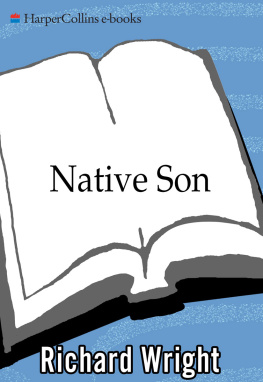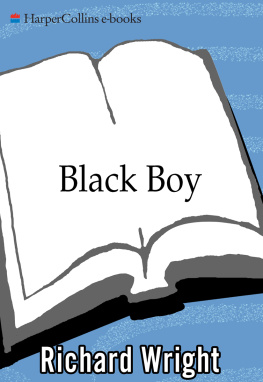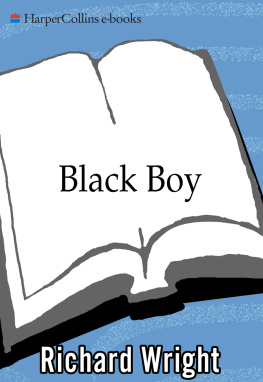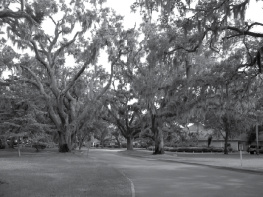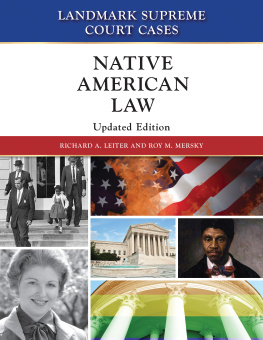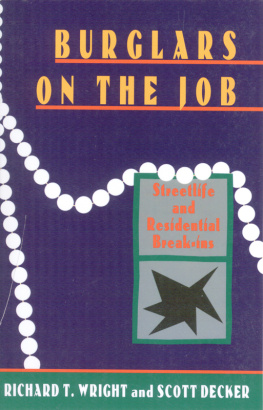Richard Wright - Native son
Here you can read online Richard Wright - Native son full text of the book (entire story) in english for free. Download pdf and epub, get meaning, cover and reviews about this ebook. year: 1940, publisher: HarperPerennial, genre: Detective and thriller. Description of the work, (preface) as well as reviews are available. Best literature library LitArk.com created for fans of good reading and offers a wide selection of genres:
Romance novel
Science fiction
Adventure
Detective
Science
History
Home and family
Prose
Art
Politics
Computer
Non-fiction
Religion
Business
Children
Humor
Choose a favorite category and find really read worthwhile books. Enjoy immersion in the world of imagination, feel the emotions of the characters or learn something new for yourself, make an fascinating discovery.
- Book:Native son
- Author:
- Publisher:HarperPerennial
- Genre:
- Year:1940
- Rating:3 / 5
- Favourites:Add to favourites
- Your mark:
- 60
- 1
- 2
- 3
- 4
- 5
Native son: summary, description and annotation
We offer to read an annotation, description, summary or preface (depends on what the author of the book "Native son" wrote himself). If you haven't found the necessary information about the book — write in the comments, we will try to find it.
Native son — read online for free the complete book (whole text) full work
Below is the text of the book, divided by pages. System saving the place of the last page read, allows you to conveniently read the book "Native son" online for free, without having to search again every time where you left off. Put a bookmark, and you can go to the page where you finished reading at any time.
Font size:
Interval:
Bookmark:
With an Introduction by Arnold Rampersad
The Restored Text Established by the Library of America

TO
My Mother
who, when I was a child at her knee, taught me to revere
the fanciful and the imaginative
Even today is my complaint rebellious ,
My stroke is heavier than my groaning .
J OB
The sound of the alarm that opens Native Son was Richard Wrights urgent call in 1940 to America to awaken from its self-induced slumber about the reality of race relations in the nation. As proud, rich, and powerful as America was, Wright insisted, the nation was facing a grave danger, one that would ultimately destroy the United States if its dimensions and devious complexity were not recognized. Native Son was intended to be Americas guide in confronting this danger.
Wright believed that few Americans, black or white, were prepared to face squarely and honestly the most profound consequences of more than two centuries of the enslavement and segregation of blacks in North America. The dehumanization of African Americans during slavery had been followed in the long aftermath of the Civil War by their often brutal repression in the South and by conditions of life in many respects equally severe in the nominally integrated North. Nevertheless, Wright knew, blacks and whites alike continued to cling to a range of fantasies about the true nature of the relationship between the races even as the nation lurched inexorably toward a possible collapse over the fundamental question of justice for the despised African American minority.
Among blacks, the centuries of abuse and exploitation had created ways of life marked by patterns of duplicity, including self-deception, as well as something far more forbidding and lethal. Slavery and neo-slavery had led not simply to the development of a psychology of timidity, passivity, and even cowardice among the African American masses, Wright suggests in Native Son , but also to an ominous emerging element of which Bigger Thomas, the central character of the novel, is a reliable if particularly forbidding example. Although this new element was itself susceptible to fantasy and self-deception, what set its members apart from other blacks was the depth of their estrangement from both black and white culture, their hatred of both groups, and their sometimes unconscious but powerful identification of violence against other human beings as the most appropriate response to the disastrous conditions of their lives. Within the confines of the black world, this violence was easily directed at fellow blacks; but increasingly, Wright warned his readers, this violence would be aimed at whites.
Wright understood fully that this message was radical to the core, and that his novel Native Son was like no other book in the history of African American literature. In 1937, in his landmark essay Blueprint for Negro Writing, he had characterized African American literature to that time as fundamentally lacking in forthrightness and independence. Generally speaking, he had written reprovingly, Negro writing in the past has been confined to humble novels, poems, and plays, prim and decorous ambassadors who went a-begging to white Americadressed in the knee-pants of servility. For the most part these artistic ambassadors were received as though they were French poodles who do clever tricks. To some extent, Wright certainly had overstated the case for the inadequacy of past black writers. At least since the publication of David Walkers vitriolic Appeal in 1829, some had vigorously protested against racism and warned white Americans about its dire consequences. Indeed, the inevitability of violence as a response to the African American condition had been the subject of literary works not only by blacks but also by whites, such as George Washington Cable in the nineteenth century and, in Wrights own time, William Faulkner.
For example, in his short story Of the Coming of John in The Souls of Black Folk (1903) and in his novel Dark Princess (1928), W. E. B. Du Bois, probably the leading African American intellectual and polemicist of his day, had depicted young black heroes enraged by racism and literally striking whites who had offended them. Blacks had hailed Claude McKays 1919 sonnet If We Must Die as a call to militant self-defense against marauding whites. Jean Toomers modernist landmark Cane (1923) included one sketch in which a black man coolly kills a white man who draws a knife on him. However, such episodes were few and far between, andwith rare exceptionsvirtually all of these black writers had placed at the center of their episodes of violence a protagonist of intelligence and sensitivity driven to an uncharacteristic act, a man of feeling from the black leadership class forced to act in ways otherwise beneath him. Not so with Wright in Native Son .
Bigger Thomas is decidedly of the poorest class, with no pretense to a sophisticated education, to anything more than rudimentary reading, or to ideals. Bigger is occasionally cunning, but there is little that is subtle about his intelligence or refined about his emotions. Knowing almost nothing about books or serious magazines, intellectually he is a creature of the movie house, where he is an easy prey to fantasies concocted by Hollywood for the gullible. He despises religion; appeals to religious faith either bore or enrage him. Estranged from his family, he is remote even from his mother; he has apparently grown up without his father, who is never mentioned in Native Son . Wright sets the tone for the depiction of Bigger Thomas in the first scene of the novel when he pits him physically against a rat that terrorizes the family. Bigger wins this battle, but not without a loss of dignity from which he barely recovers by the end of the book.
Although American literature had witnessed cameo appearances by renegade blacks (examples of the bad nigger, as Sterling A. Brown called one of the main literary stereotypes of African American character), no one quite like Bigger Thomas had ever been seen before the publication of Native Son . Nevertheless, one can locate at least some of the key elements of Biggers characterization in a broader literary tradition. Unmistakably behind Native Son , although in no way detracting from Wrights personal achievement in creating the novel, is the tradition of naturalism, especially urban naturalism, in American writing as epitomized before Wright by novelists such as Frank Norris, Stephen Crane, Jack London, Theodore Dreiser, and James T. Farrell. To such writers, the city in the late nineteenth and the early twentieth centuries in America could be an alluring place; but it also often was, for persons without brains or money or simply good luck, a crucible in which the superficial elements of personality and civilization were quickly burned away, to reveal the animal underneath.
As Wright grew up in the South under the harsh conditions he would describe in his autobiography Black Boy (1945) and began to read fiction, he took readily to urban naturalism. For him, the road to Native Son had started with his first exposure to the major naturalists and realists. All my life had shaped me for the realism, the naturalism of the modern novel, he declared in Black Boy , and I could not read enough of them. He was born in Mississippi in 1908, the first of two sons of a sharecropper who deserted his family when Richard was five or six. Soon after, his mother suffered paralytic strokes that left her dependent on her own mother, a devout religious fundamentalist and stern disciplinarian who apparently tried to crush Wrights childhood interest in the world of the imagination. While his mother sank in he eyes into the embodiment of passivity and victimization, he found it almost impossible to forge warm ties with other human beings. For a while, Wright and his brother lived in an orphanage. Later he would recall his childhood as a time of hungerfor food, but also for affection, understanding, and education. A good student, he never finished high school. His jobs in the South were marked by harassment by whites and by his own disdain for what segregation and racism had done to distort the humanity of his fellow blacks, as he saw it. In 1927, he fled the South for Chicago.
Font size:
Interval:
Bookmark:
Similar books «Native son»
Look at similar books to Native son. We have selected literature similar in name and meaning in the hope of providing readers with more options to find new, interesting, not yet read works.
Discussion, reviews of the book Native son and just readers' own opinions. Leave your comments, write what you think about the work, its meaning or the main characters. Specify what exactly you liked and what you didn't like, and why you think so.

